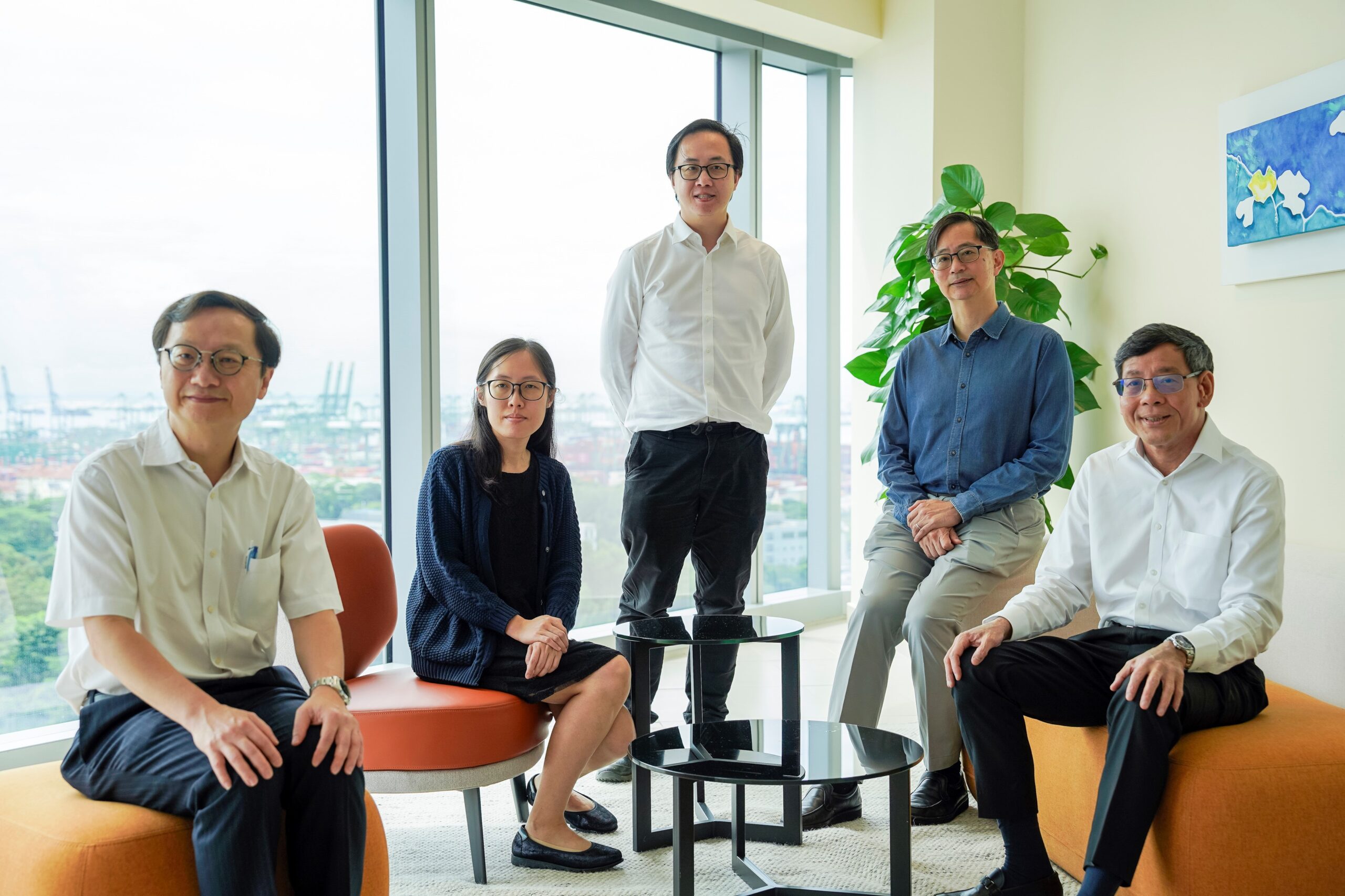Defusing a ‘ticking time bomb’: Groundbreaking research offers early clues to stomach cancer development
Published: 13 Dec 2023

[From left] Prof Jimmy So, National University Hospital and NUS Medicine; Dr Roxanne Chong, NUS Medicine; Dr Huang Kie Kyon, Duke-NUS Medical School; Prof Patrick Tan,Duke-NUS Medical School; Prof Yeoh Khay Guan, National University Hospital and NUS Medicine (Credit: National University Health System)
In a breakthrough study published in the highly respected journal Cancer Cell, researchers have decoded critical genetic factors in intestinal metaplasia patients, shedding light on early signs and prevention strategies for stomach cancer – often a “ticking time bomb” as patients experience no or only mild symptoms in the early stages.
Intestinal metaplasia, which is a change in the cells of the mucous membrane lining the stomach that often stems from chronic gastritis and manifests with symptoms akin to acid reflux, is also a sinister link to stomach cancer. Individuals afflicted with intestinal metaplasia cells face a six-fold increased risk of succumbing to this lethal cancer.
In Singapore alone, stomach cancer ranks as the fourth leading cause of cancer deaths in men and the fifth among women, claiming 300 to 500 lives annually, largely due to late detection. Two thirds of stomach cancer patients are only diagnosed at an advanced stage.
The longitudinal study, which represents the world’s largest genomic survey of patients with intestinal metaplasia, examines more than 1,100 tissue samples using powerful technologies such as single-cell RNA sequencing and spatial transcriptomics. Based on this extensive survey, researchers identified 26 ‘driver genes’ that play a pivotal role in the transition to stomach cancer. This landmark finding provides a glimpse into the mechanisms governing the transformation and offers a critical window for early detection and targeted prevention.
The multi-institutional effort by researchers from Duke-NUS Medical School, National University Hospital (NUH), Yong Loo Lin School of Medicine, National University of Singapore (NUS Medicine) and Seoul National University Hospital reflects thestrengths of Singapore’s multi-institutional cancer research ecosystem and its strong links with global partners. This study was supported by the Singapore Gastric Cancer Consortium (SGCC), a national translational research group comprising clinicians and scientists working in stomach cancer research from academic medical centres, universities, hospitals and research institutes across Singapore. The published work is derived from the prospective Gastric Cancer Epidemiology Programme cohort.
Read the media release here.

